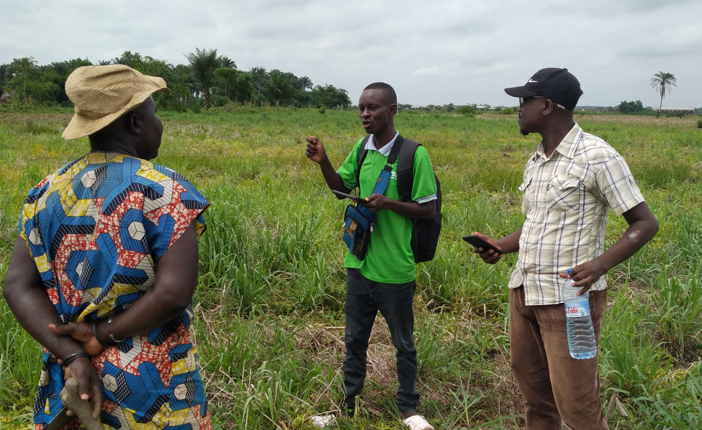Benin – How are farmers proceeding and what could be improved? A survey in 3 villages conducted by our partner CREDEL is a trigger for change.
The villages of Toganhounsa, Dannou and Gogbo are situated in Adjohoun municipality in southern Benin. The inhabitants are mainly farmers living on the banks of the Ouémé river. In recent years, farmers have suffered from the effects of climate change. For instance, there is not enough water to complete the production cycle at the end of the dry season and before the start of the rainy season. Moreover, many trees have been cut down to create land for food production.
To find out more about farming and irrigation practices in Adjohoun region, our partner CREDEL conducted a field survey of 63 producers, including 12 women. Based on the results, there will be actions to support vegetable growers.
Intercropping?
The crops most commonly grown are maize, chilli and beans. Although producers are aware of certain agro-ecological practices such as composting, intercropping and crop rotation, they do not apply them systematically. Either they lack the necessary knowledge or there are not enough resources. For example, only a third of the producers in the sample have already practised intercropping. All farmers use chemical products for pest control. 31% of producers say they would like to know more about biopesticides to reduce or stop using chemicals. Some of them fence their plots with trees. It would be interesting to apply this technique of agroforestry systematically.
The main sources of irrigation are the Ouémé river, drainage and canals. There is no manual drilling in the area where the survey ran. Ten of the surveyed producers said they use a motor pump to water their crops from the river. But most farmers do not have their own pumps and have to pay to rent them from someone.
Join For Water and CREDEL want to improve the situation of these farmers. Activities are planned to make them more resilient to climate change. For instance, there will be model plots to promote good agroecological and agroforestry practices. With the installation of additional irrigation systems, farmers will bridge the water shortage at the end of the dry season.
These actions will allow them to secure the production of their crops. They themselves, their families and the whole community will reap the fruits – literally.
Text: Terry Berckmans
Our partner CREDEL

